UW-Milwaukee now says UWM leadership and the student protesters have reached an agreement, and the encampment will be fully down by Tuesday morning.
The pro-Palestinian occupiers at the University of Wisconsin-Milwaukee encampment posted a set of “rules” inside the state-owned lawn they’ve fenced in. The “rules,” which were hanging inside the encampment on May 12, banned people entering the area from speaking with or assisting police and demanded that people report suspicious people to yellow-vest wearing protester “security” guards instead of law enforcement.
If people didn’t comply, even though public property must be legally accessible to all, the rules warned: “Anyone not following these rules will be held accountable and possibly asked to leave.” The area in question is a large lawn in front of Mitchell Hall, a major campus building that students must enter for some classes.
The set of rules, observed and photographed on May 12 inside the UWM encampment, reads, “UWM Popular University for Palestine Coalition Guidelines.”
“Do not talk to law enforcement – please find someone in a yellow vest, and they will find the police liaison,” the “guidelines” say. “We abide by St. Paul Principles: “We oppose any state repression of dissent, including surveillance, infiltration, disruption and violence. We agree not to assist law enforcement actions against activists and others.”
Later in the evening on May 12, Chancellor Mark Mone suddenly announced that the UWM encampment will come down.
“I’m writing to share that UWM leadership has reached an agreement with representatives of the student protesters encamped on the lawn outside of Mitchell Hall. As a result, students have started dismantling the encampment and will finish doing so by Tuesday morning,” he wrote.
The agreement calls for the release of hostages held by ISRAEL as well as Hamas.
“Innocent civilians, especially children, must not be the targets of war. This is why we also call for the release of the remaining Israeli and international hostages held by Hamas and the release of Palestinian men, women and children held as hostages in military detention in Israel. We condemn all violence and call for it to end,” it reads.
The agreement says that UWM, a taxpayer-funded university, has called for a ceasefire and denounced “scholasticide,” which is the “destruction of universities in Gaza.”
“The Chancellor and the Provost have agreed to forgo relevant citations or conduct violations for the Coalition and the student groups,” for “camping activity” only, UWM says. Taxpayer-funded staff will clean the graffiti off Mitchell Hall and help remove plywood and other large items, he wrote.
They will also review study abroad policies and say an entity called the Water Council has ended relationships with two Israeli-government-owned water companies, Mekorot and Israel Innovation Authority.
There was no sign of any dismantling of the encampment around noon Sunday.
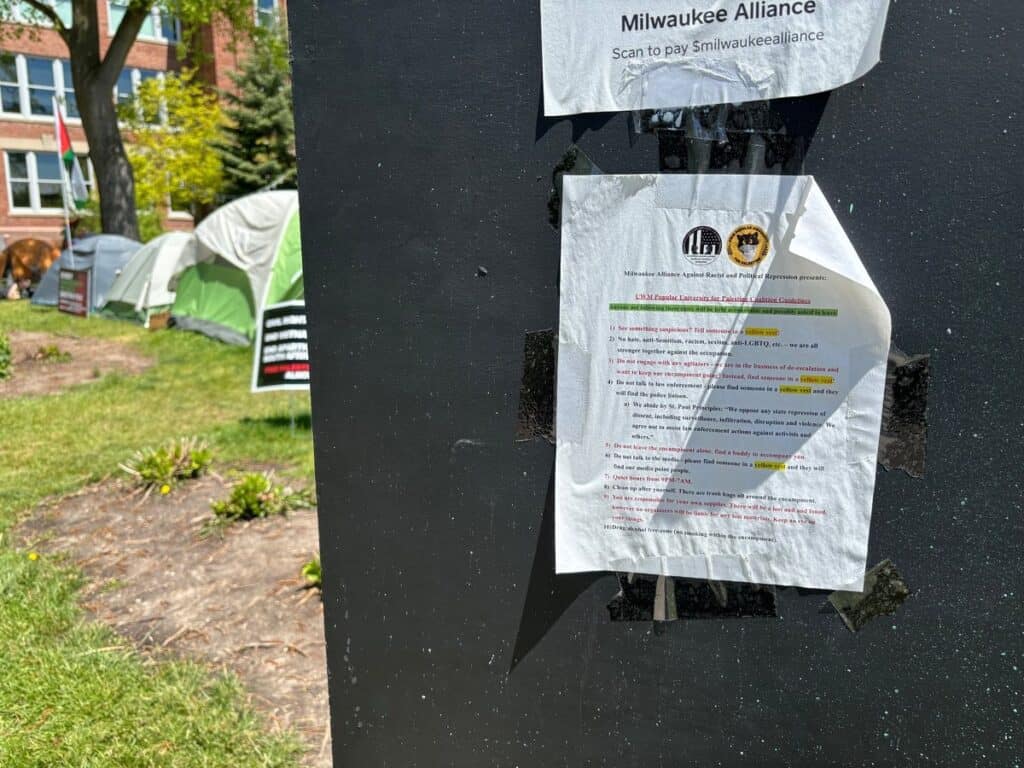
There was also no sign of any police presence at the UWM encampment on May 12.
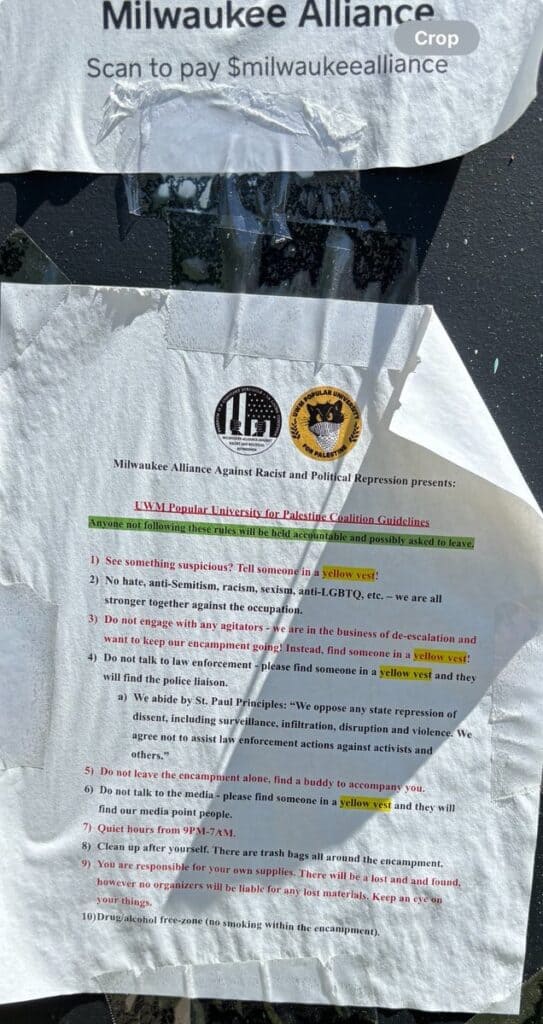
A sign prominently displayed on the fence built by the occupiers on public property read,
“In memoriam to fellow protesters across the USA.
UCLA has fallen,
Columbia Uni has fallen,
P.S.U. has fallen,
UW-Madison has fallen,
George Washington Uni has fallen.
UW-Milwaukee will not fall to the pigs next! Free Palestine!”
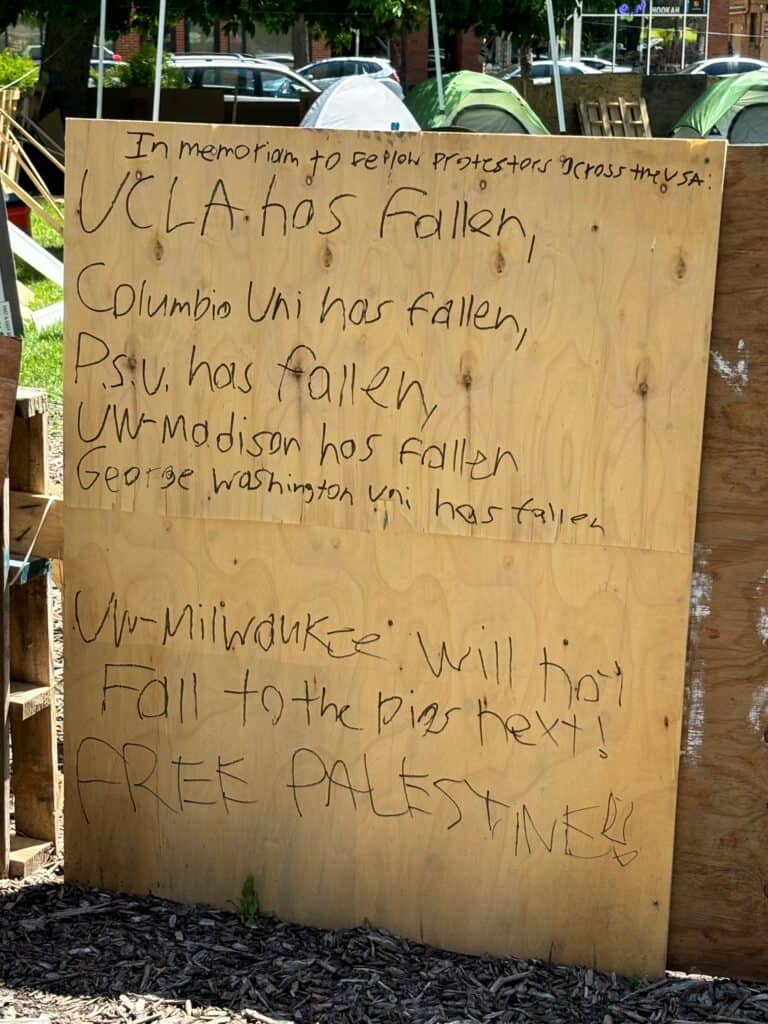 A sign also declares that “pigs” are not welcome in the encampment, referring to police.
A sign also declares that “pigs” are not welcome in the encampment, referring to police.
On May 3, the UWM Dean of Students, Adam Jussel, wrote, “I’ve heard some students say they don’t feel safe walking past the encampment or hearing chants. Other students have said that if they speak out, they will be shouted down. And others say they just want to go to class and work and hope our campus is safe for everyone.”
On May 8, UWM Chancellor Mark Mone wrote, “If the encampment doesn’t end soon, UWM will have to take action to ensure that it does.”
On May 11, Mone told WISN-TV: “The encampments are at a place where we value the peace, we value the meaning of what’s going on, but we also know it’s illegal,” said Mone. “We do see the very, very distinct possibilities for ends of this coming around the corner.” Asked by the reporter if there is a “timeline on that,” Mone responded, “We do have a timeline in mind, but I’m not really able to share that yet.”
This all occurred as UW-Madison’s tents were coming down.

No police officers or administrators were visible at the encampment on May 12, where the yellow-vest wearing protester security guards shared information via walkie talkie. They were overheard talking about a person taking photographs of the public area and passing on a man’s clothing description as they manned gates, and the entrance to Mitchell Hall.
It’s intimidating.
The chalk graffiti on Mitchell Hall, a taxpayer-funded building, remained on May 12, and it was visible to anyone who walked through the door to the building, where some students have classes (next week is finals week). The phrases “f*ck Israel” and “zionism is terrorism” were visible on the building, which was covered in chalk graffiti.
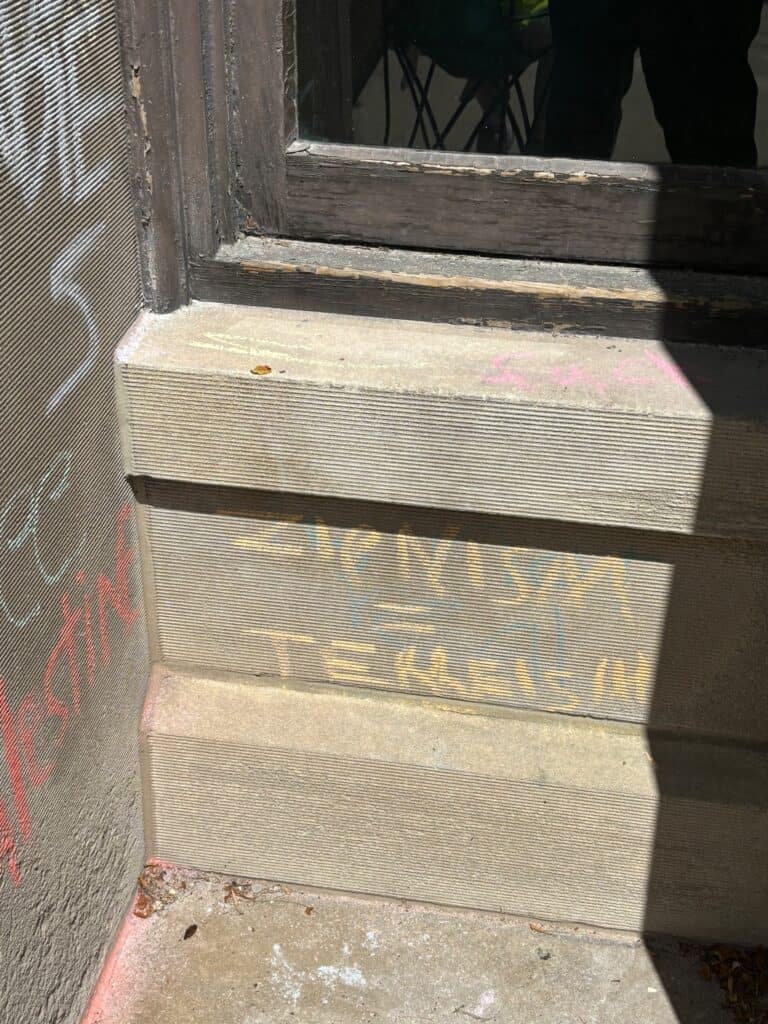
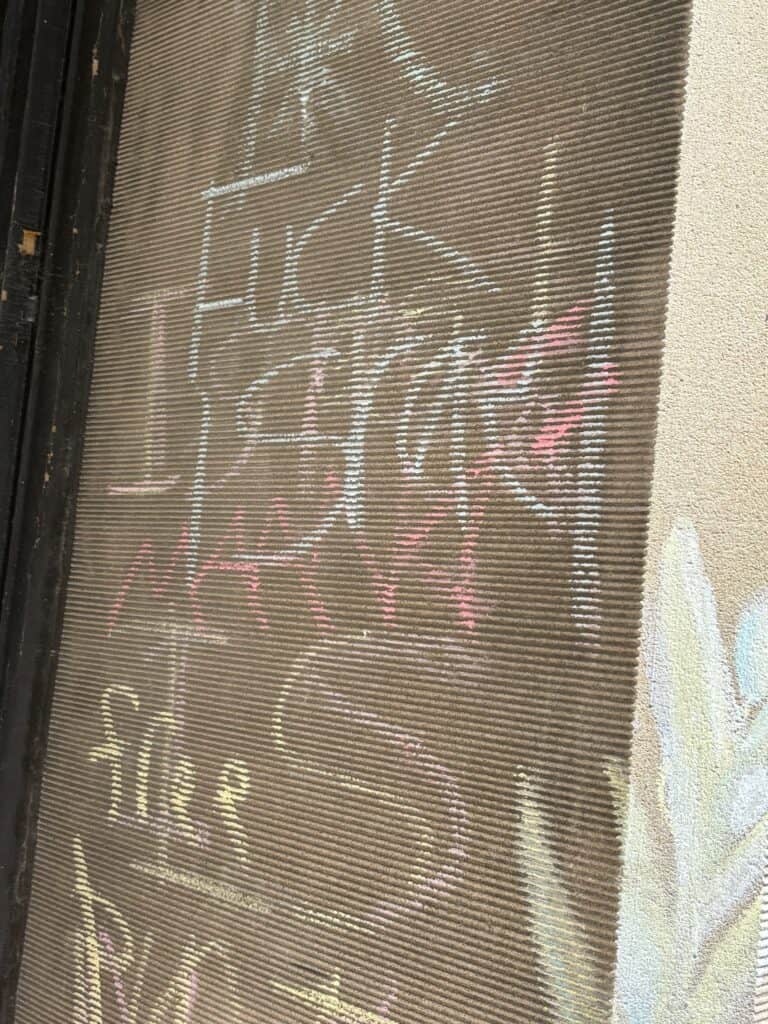 Students and faculty entering the building through the entrance facing Kenwood, including Jewish students and faculty, would need to walk over steps covered with chalk-drawn waves and the large phrase “From the river to the sea.”
Students and faculty entering the building through the entrance facing Kenwood, including Jewish students and faculty, would need to walk over steps covered with chalk-drawn waves and the large phrase “From the river to the sea.”
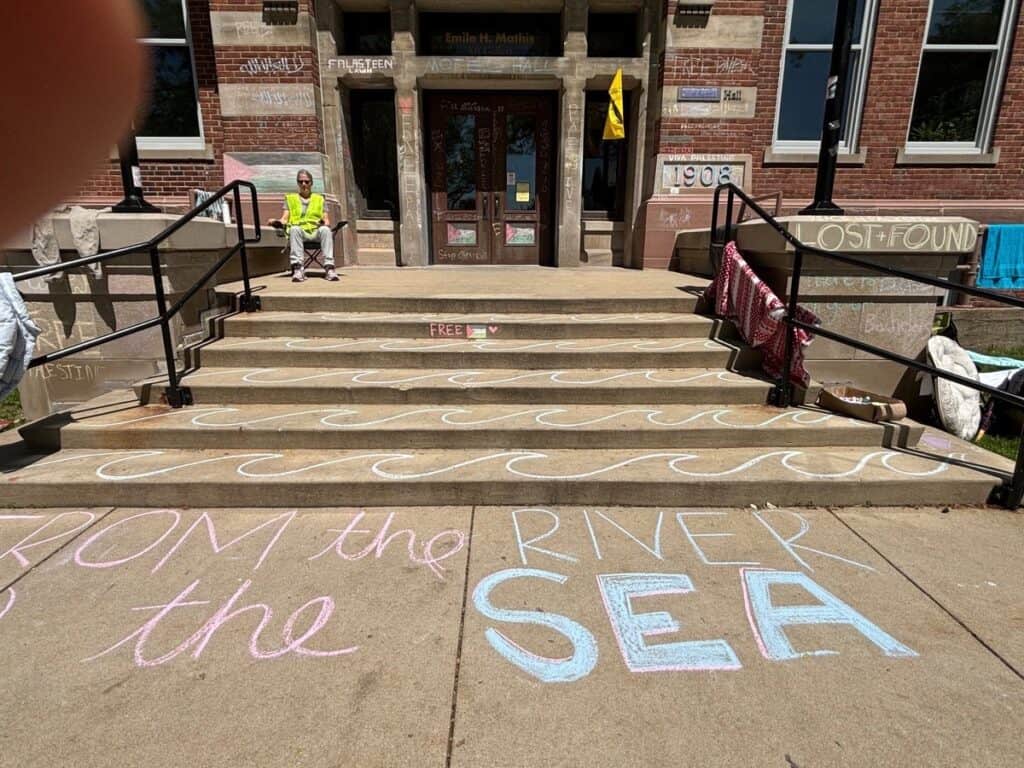
They would need to enter a public building that the protesters have renamed after a man who referred to Oct. 7 as “legitimate and moral,” according to BBC, and who compared it to Jews rising up against the Nazis in the Warsaw Ghetto during the Holocaust. They would have to walk past a protester “security guard” wearing a yellow vest and sitting at the entrance.
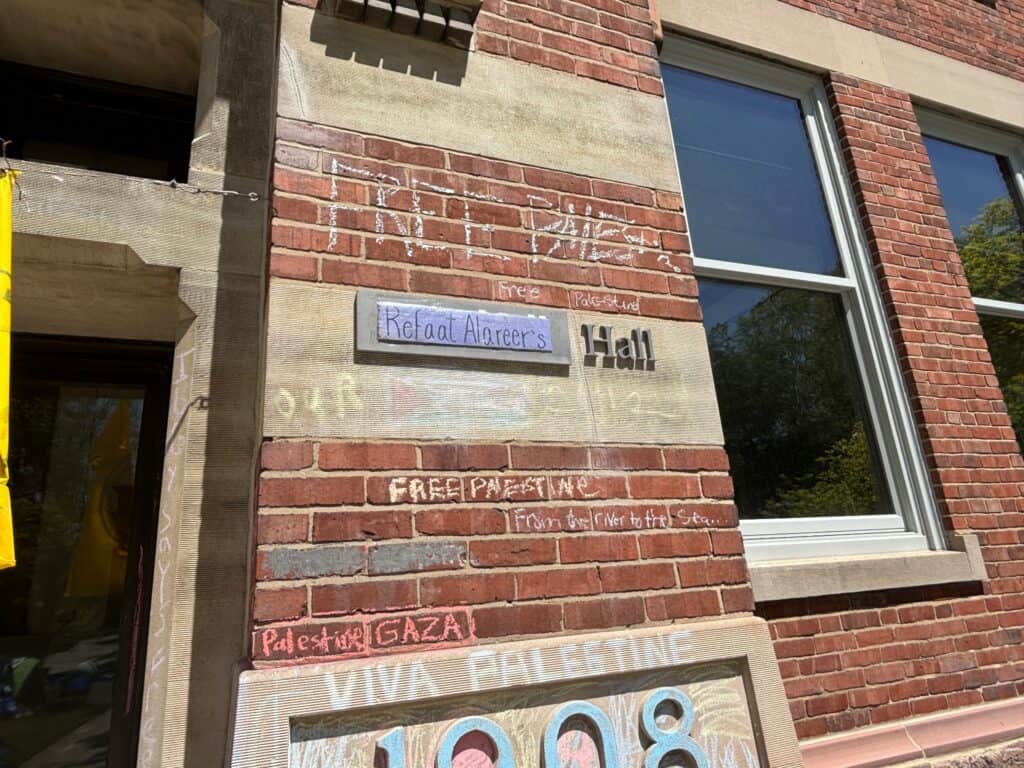
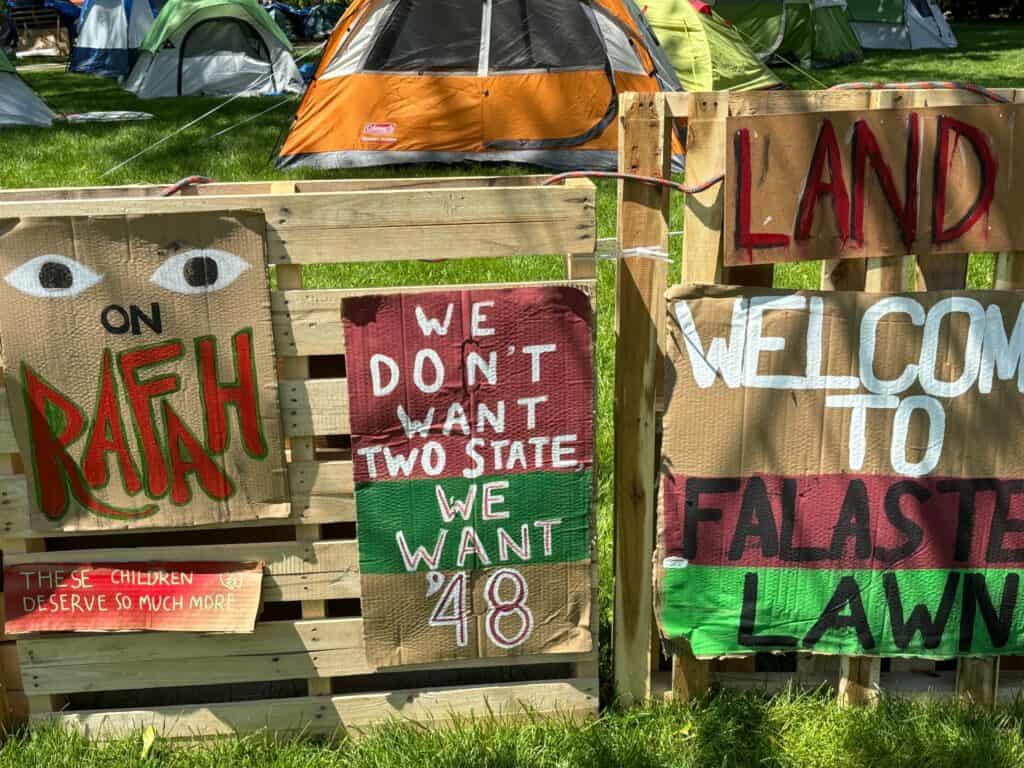
Here are more scenes of the encampment on May 12.
The “rules” say that if people see “something suspicious,” they are supposed to “tell someone in a yellow vest,” referring to the ever-present protester “security guards.”
The rules ban “hate, anti-Semitism, racism, sexism, anti-LGBTQ, etc. – we are all stronger together against the occupation.”
Yet they don’t explain why rhetoric is allowed inside the encampment such as “f*ck Israel” (chalked on the side of Mitchell Hall) or why the Hall, for days, has born the name of a Palestinian professor who controversially praised Oct. 7 as “legitimate and moral.”
They also don’t explain why previously we observed a pro-October 7 flyer prominently hanging inside the encampment (it had been removed on May 12.) It refers to “Al Aqsa Flood” in a positive light – that’s the phrase for the Oct. 7 terrorist attack.
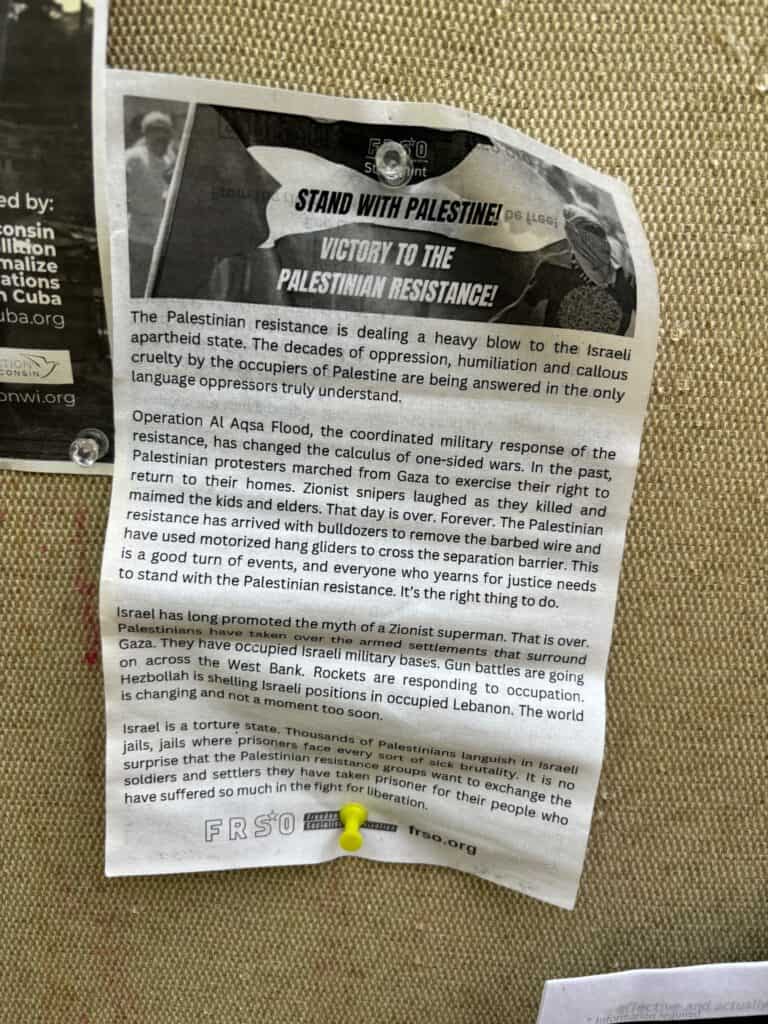
There is still a painting on the makeshift fence with the phrase Oct. 7 crossed out.
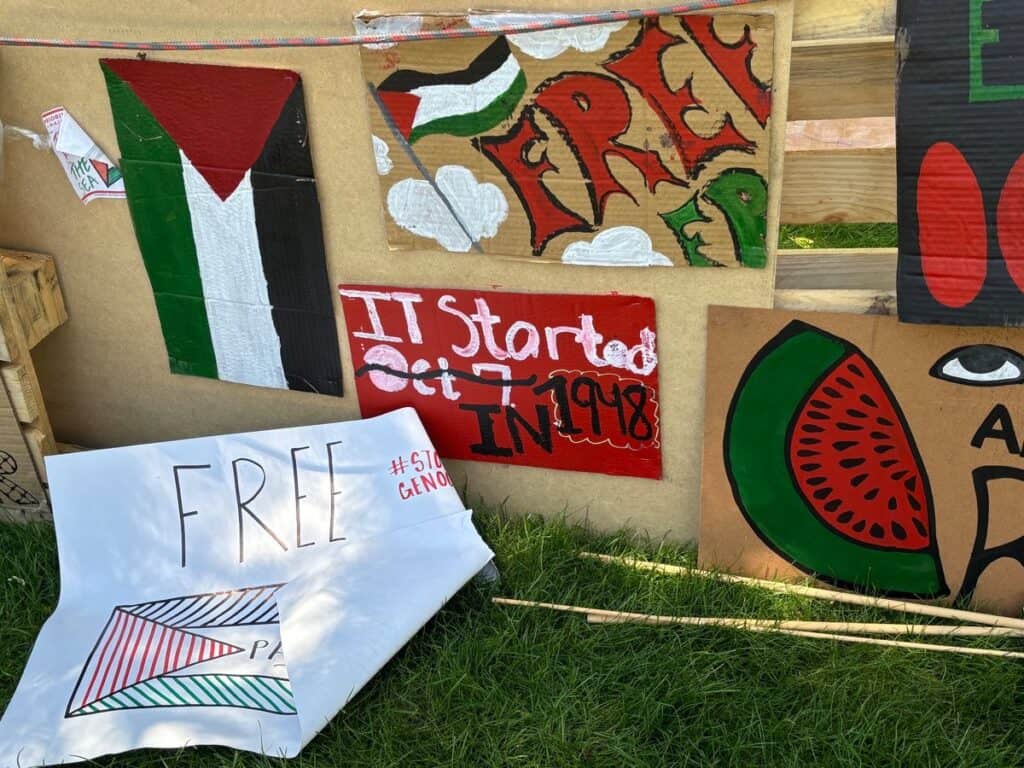
The guidelines also ban leaving the encampment alone and talking to the media, noting “please find someone in a yellow vest and they will find our media point people.”


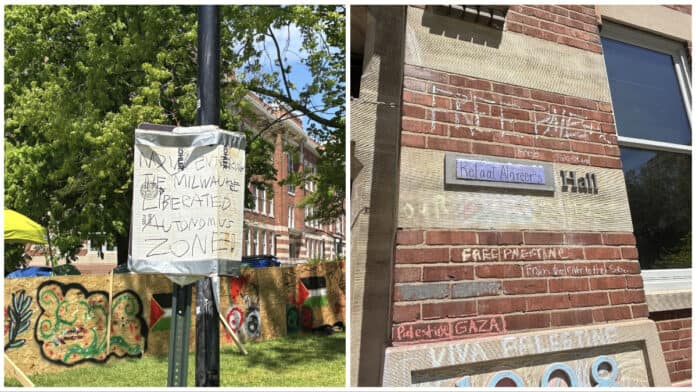
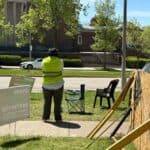
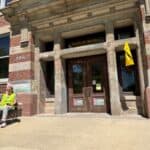
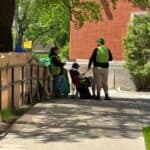
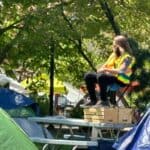
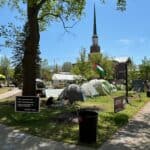
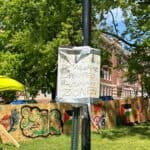
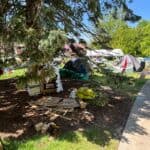
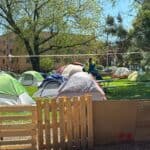




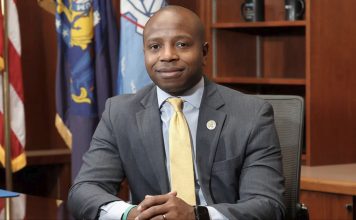


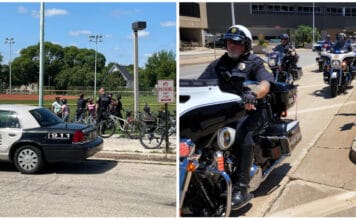

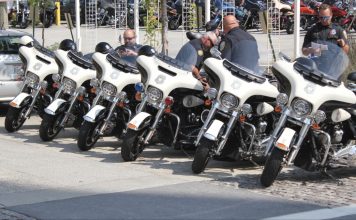







![WATCH: Elon Musk Town Hall Rally in Green Bay [FULL Video]](https://www.wisconsinrightnow.com/wp-content/uploads/2022/04/Elon_Musk_3018710552-356x220.jpg)












